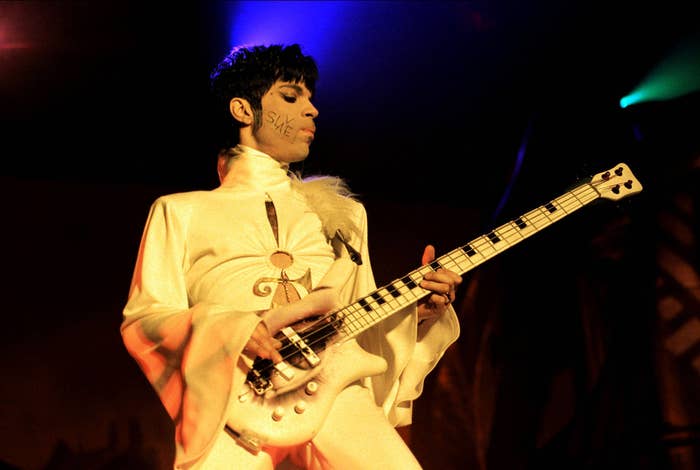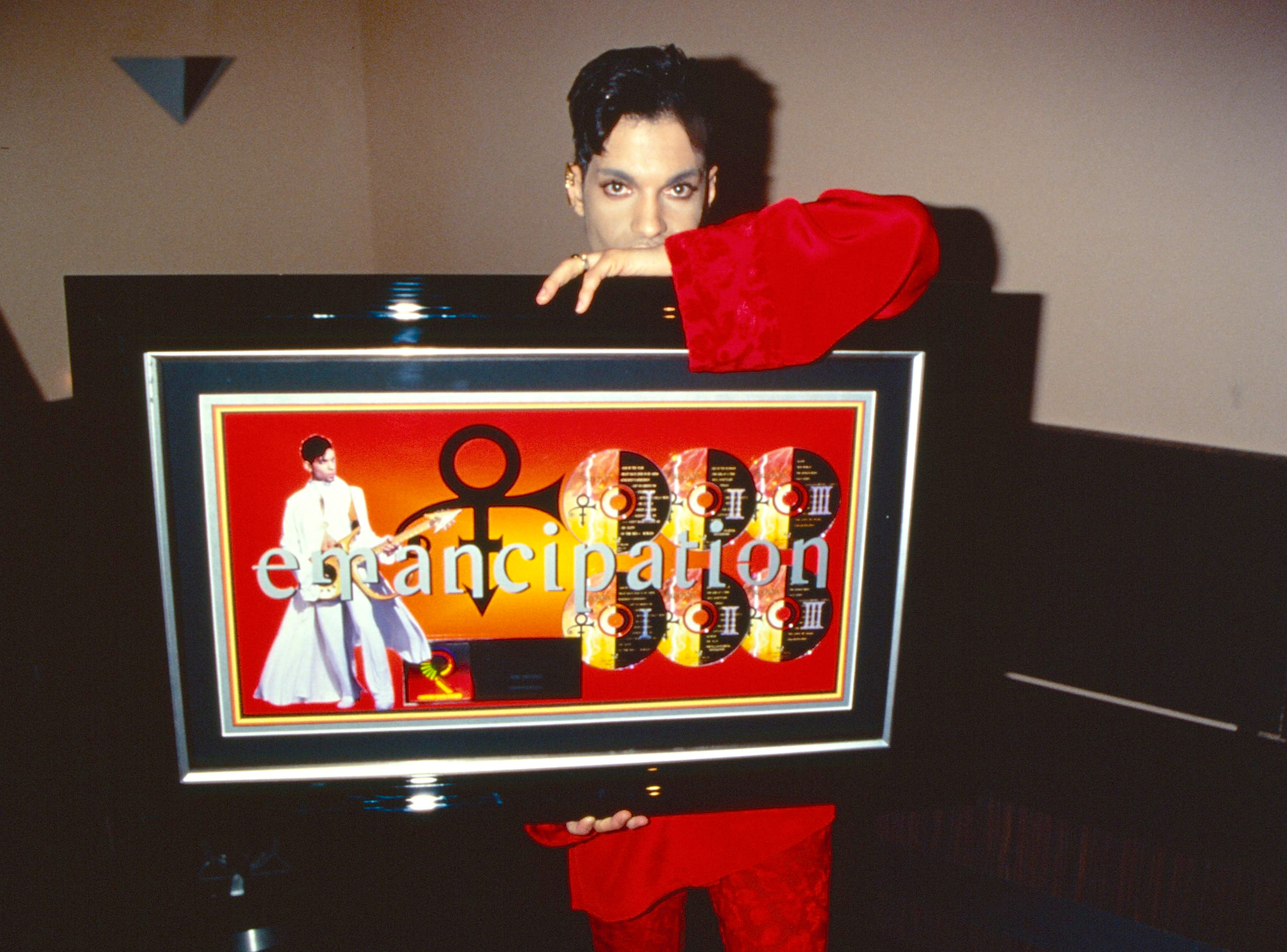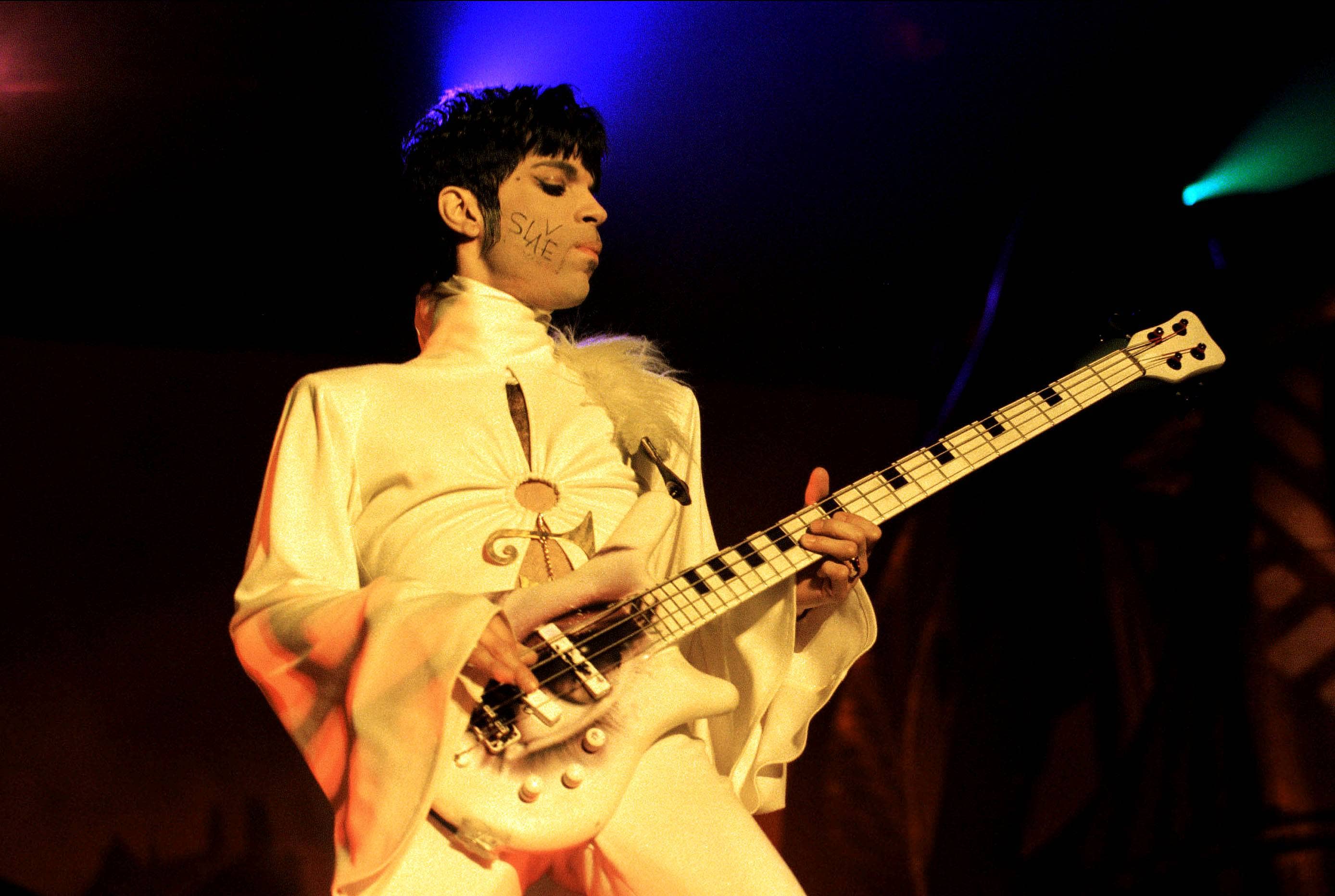
In 1996, Prince finally got what he had spent the first half of his career pleading for: freedom. At 18, the multi-talented artist entered a contract with Warner Bros. that would result in an ongoing battle for ownership and creative control of his music. Prince’s sporadic nature was inconsistent with the company’s standard procedure of releasing an album every one and a half years, a practice that limited his creative process. “Warner wanted a record only every 18 months. I could release a record every seven months,” he said. "I could not record when I wanted to.”
18 years after his initial signing, Prince was at last emancipated from the label and of course, in popular Prince manner, released a quite symbolic album to mark the occasion.
It was undoubtedly, authentically Prince to test any authority that restricted his creative freedom and withheld his earnings. The late pop star who blessed us with hits like “Purple Rain” and “When Doves Cry” waged battle against the music industry, streaming platforms, and labels until the day he died, unafraid to go public with his beliefs even when it put his own career at risk. But the release of Emancipation, his first album post-Warner Bros, left the greatest proof that he had no intentions of backing down.
Leading up to the split with Warner Bros., Prince’s frustration with the system that controlled him grew public. In 1993, he opted for a new name, legally changing it to an androgynous, nameless symbol, to illustrate that any music released subsequently did not belong to Warner Brothers.
"Prince is the name that my mother gave me at birth. Warner Bros. took the name, trademarked it, and used it as the main marketing tool to promote all of the music that I wrote."
"The first step I have taken towards the ultimate goal of emancipating from the chains that bind me to Warner Bros. was to change my name from Prince to (symbol)," he said in a press release. "Prince is the name that my mother gave me at birth. Warner Bros. took the name, trademarked it, and used it as the main marketing tool to promote all of the music that I wrote."
By 1995, he began writing “slave” on his cheek as a public nod to his quest for artistic freedom—a bold demonstration for a Black entertainer in the '90s. Prince was never shy to break the rules of what a Black male musician should be. He dabbled in feminine clothing, always kept a mixed band, and employed women proudly. Displaying the word "slave" on his face was just one of the many ways Prince pushed his agenda.
"People think I'm a crazy fool for writing 'slave' on my face," Prince told Rolling Stone in 1996. "But if I can't do what I want to do, what am I?” From the marking on his face to the words he chose in interviews, Prince insisted that he was a victim of institutionalized slavery within the major label system.
At the time, many fans were as irritated with the artist as his label was. Some saw him as ungrateful and egotistical and deemed his confrontation as petty. The loss of interest and pushback he received while advocating for fair treatment was not unlike the reaction to Colin Kaepernick taking a knee. The same way football fans disregarded him for disrupting such a prominent organization, music fans dismissed Prince for battling a company that was so popular and powerful. After all, Warner Bros. was the label that marketed and distributed some of Prince’s greatest work, including the 13-times-platinum album Purple Rain and 1986’s chart-topper “Kiss.”
"All people care about nowadays is getting paid, so they try to do just what the audience wants them to do. I'd rather give people what they need rather than just what they want."
Still, Prince felt undervalued and exploited, and it fueled his defiance. "All people care about nowadays is getting paid, so they try to do just what the audience wants them to do," he said to the Los Angeles Times in 1982. "I'd rather give people what they need rather than just what they want."
Through calculated forms of protest, Prince battled his contract to the very end, however he could. Chaos and Disorder, his final album under Warner Bros., has been noted as some of his least greatest work. The hastily written songs and lack of self promotion were apparent, but the project set the stage for the remarkable independent work that was to come immediately after.
In 1996, when the contract finally ended, Emancipation was born. The three-disc album was distributed and marketed under a one-album deal with EMI that allowed Prince to retain his masters. Upon release, it was obvious that Emancipation was unlike anything Prince had created before. The project was longer than his previous albums averaging 50 minutes of playtime, and had three parts that ran one hour each. The material consisted of songs that explored topics like marriage and his newfound role as a father—less sexy subjects than his notable promiscuous and erotic themes—and a continuing theme of freedom.

While it wasn’t consistent with Prince’s previous work or his most commercially successful output, the album holds weight in the vault of Prince releases. From the album’s title, to its release date on November 19, and the coincidence of it being the 19th album in the artist’s discography, the project strikes a particularly significant chord on Juneteenth, the commemoration of emancipation in the United States.
"This is what freedom sounds like,” Prince said about the album to USA Today in 1996. "When I saw light at the end of the tunnel, I made a beeline for it. This is the most exciting time of my life. There was nothing in the way when I recorded. Nobody looked over my shoulder. Nothing was remixed, censored, chopped down or edited."
Always, but especially today, Prince’s Emancipation feels like a win in an ongoing battle for freedom. As national issues within society are being tackled, the music industry is under scrutiny due to a history of unfairness, systemic racism, and the unwillingness of artists with the biggest platforms to speak out against the status quo. Prince was never shy of being a voice for himself and others. “Despite everything, no one can dictate who you are to other people,” he told Rolling Stone in 2011. "Alicia Keys gets it. All these hip-hop artists, the first thing they do is start their own label and lock their business down—we had a lot to do with that.”
The legacy Prince left behind spans beyond his musical talent. It’s also an unparalleled agenda of protest, demand, and advocacy in the music industry. Prince signed when he was 18 years old and released 18 albums while fighting the system that owned his most valuable work, but finally, on the 19th album, he got what he wanted. His career is an important reminder that change is a result of activism. After all, it is continuous drive and relentless efforts that fuel the movement unfolding in America right now—the same kind of momentum that landed Prince his emancipation.

